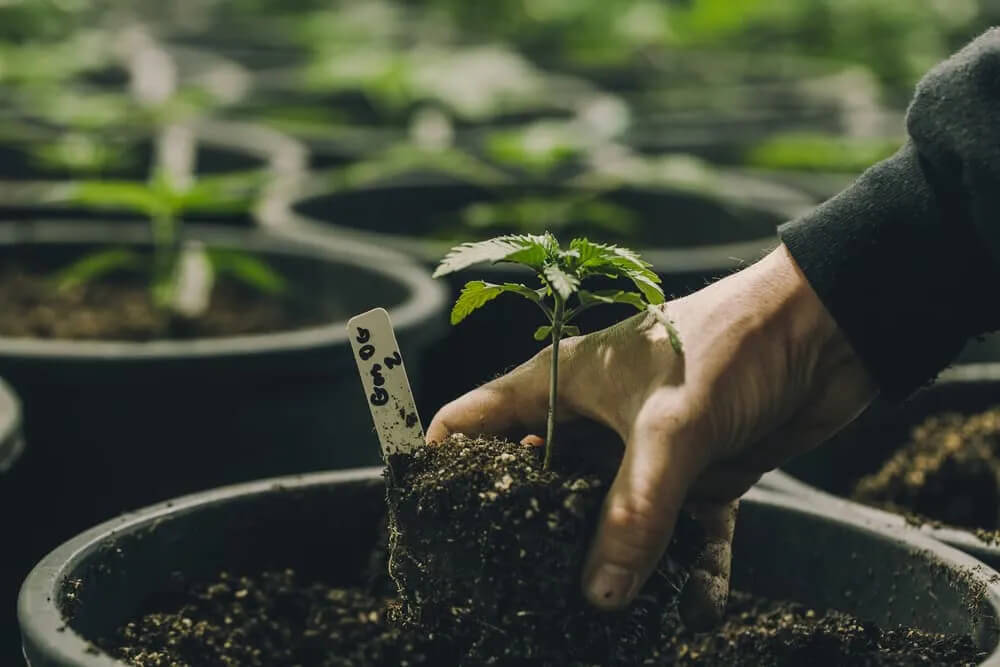Cannabis legalization has been a long and rocky road. A major push in the right direction was the 2018 Farm Bill defining the difference between intoxicating marijuana used in the medical and recreational market vs. industrial hemp used for textile fibers and CBD products.
420 Accounting Services has helped many cannabis businesses understand vital regulations concerning the cannabis industry. Keep reading to learn more about the Hemp Farming Act of 2018 status, background, and details you need to begin planning for business compliance.
How Federal Law Regarding Hemp and CBD Has Evolved
In 1970, a misguided act in the War on Drugs classified all cannabis sativa plants as “Schedule I,” specifically targeting the psychoactive THC molecule found in the plant. This regulation provided no mention of the other common cannabinoid molecule, CBD, naturally occurring in cannabis sativa plants. However, any cultivation of cannabis sativa plants and their byproducts fell within the Schedule I drug classification.
In 2014, the first Hemp-related farm bill was passed permitting the cultivation of industrial hemp, but not the cultivation of by-products. This bill, however, left large gaps in interpretation which were closed four years later in the 2018 Farm Bill. This bill defined hemp with less than 0.3% THC concentration as legally non-psychoactive and permitted for industrial production. Products derived from hemp containing no more than 0.3% THC, from textile fibers to CBD extract, fall under this legal permit.
Other regulations leveled by the DEA (regarding inert cannabis plant parts) and the FDA (regarding approved food/medical products) play a role. Still, the 2018 Farm Bill has set the stage for the legal production, use, transport, and general operation of CBD products.
The 2018 Farm Bill
The 2018 Farm Bill closed significant policy gaps from the first 2014 Farm Bill. Primarily, it defined just how much naturally occurring THC is permitted in industrial hemp and its by-products, including CBD. As long as each cannabis plant and product contains less than 0.3% THC, the products are considered part of the industrial hemp market and permitted by federal law. This is how CBD products, but not THC products, have become legal in non-legal states and can even cross state borders without federal repercussions.
The 2018 Farm Bill Defines:
- Legal “Industrial Hem” is any cannabis sativa L plant or part with less than 0.3% THC in dry weight. “Dry weight” percentage means they take dried, cured plant material and extract the THC. It is legal if the extractable THC is less than 0.3% of the dry weight.
- Hemp is removed from the 1970 Controlled Substances Act and is now permitted for legal cultivation, sale, distribution, and medical studies.
- Native American Tribes have the broad authority to regulate and limit hemp within their borders. However, states and tribes cannot limit flow-of-commerce hemp transport across borders – just use, production, or sale within the borders.
This has provided a massive marketplace change for textile hemp and the CBD market.
Consequences of the 2018 Farm Bill to the Hemp and CBD Industries
The 2018 farm bill opened up a massive market for CBD products in states where cannabis is not yet legalized and as part of the medical marijuana market in legal states. The 2018 Farm Bill has allowed the CBD industry to thrive, providing most of the physical and health benefits discovered in the cannabis sativa plant without the controversial psychoactive element.
In the four years since this bill has passed, the CBD market has become highly stable and continued to grow. Now, there are even a few FDA-approved CBD products and a growing landscape of states that encourage the regulated development of new CBD business models. CBD businesses are safe from cannabis-related prosecution risk as long as every test comes in below 0.3% THC (or overly strong products are disposed of immediately).
Now, the CBD industry remains carefully within regulations while pushing for greater FDA approval of products and fact-based marketing materials.
Questions Regarding Research
One important avenue opened by the 2018 Farm Bill is CBD research. Without federal legalization, medical and research groups could not legally put together studies to prove the safety or medical benefits of cannabis products. The 2018 Farm Bill via Section 7605 provides protections for hemp research and conditions in which research can be conducted. However, only existing federal cannabis research facilities are permitted to contribute – mainly the University of Mississippi’s NIDA facility. CBD researchers now push for greater latitude to conduct the studies that will provide the necessary data for further policy reform.
Learn More About Cannabis Compliance
Today’s Hemp industry is a booming market of supply and demand in both cannabis-legal and non-legal states. Due to federal legalization of cannabis below 0.3% THC, CBD extracts and even full-spectrum hemp oil are legal to produce, test, sell, and transport across state lines. However, the next hurdles will be facing the FDA in seeking approval for proven-claim marketing rights and products officially approved for human consumption.
At 420 Accounting Services, we work with cannabis businesses to help organize compliance remediation, analyze liability, and launch operative legalized mitigation in crucial areas. Any cannabis business should receive the appropriate attention from operators and stakeholders alike. Compliance isn’t a bad word, and it shouldn’t be treated like one. Contact our team today to schedule a consultation.

